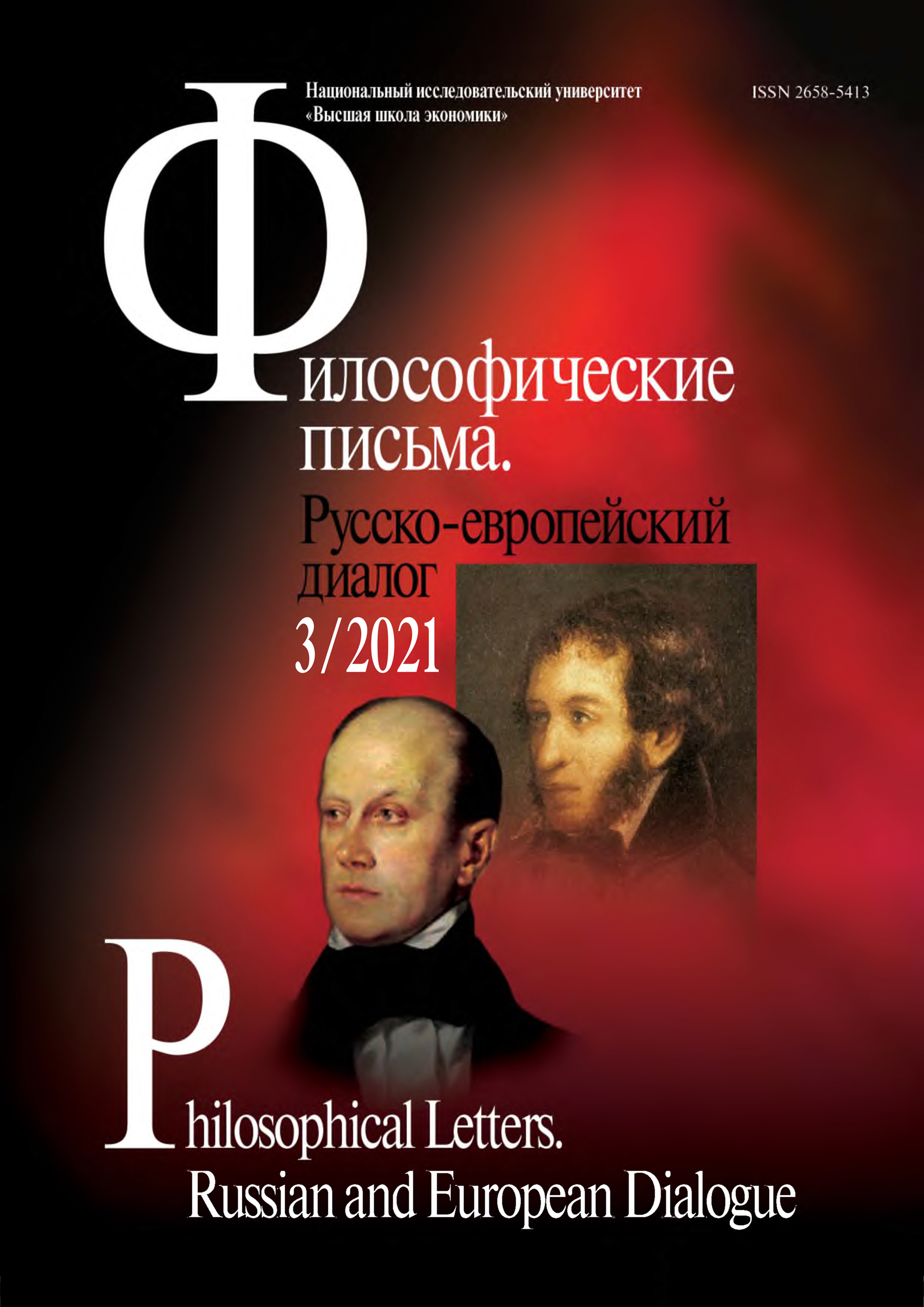Why did K.N. Leontiev Call the Ideas of L.N. Tolstoy and F.M. Dostoyevsky “Pink” Christianity?
Abstract
The article discusses criticism of the phenomenon of “pink” Christianity of Dostoevsky and Tolstoy by K. N. Leontiev. To uncover the main features of the “false Christian” worldview, Leontiev analyzes literary works of Russian writers: “Pushkin Speech” and Dostoyevsky’s novel “The Brothers Karamazov”, as well as the story “What People Live By?” and some of Tolstoy’s other works. The discussion about true Christianity is of a soteriological nature, as it shows how three different religious models (“World Harmony” by Dostoevsky, “Transcendental Egoism” by Leontiev
and “The Intelligent Kingdom of Good and Truth” by Tolstoy) is consistent with the church’s doctrine of salvation. In his criticism of the “pink” Christianity of Dostoevsky Leontiev, however, did not see the resemblance to his own religious concept. Defending the Old Testament holy Christianity, Leontiev saw the basis of the true faith in fear, while Dostoevsky proclaimed a new type of Christianity based on universal love. Mistakenly confusing this motive with the humanistic tendency of replacing faith with morality (characteristic of the West) Leontiev accuses Dostoevsky and Tolstoy of the lightness and sentimentality of their religious beliefs. The article also deals with criticism of Leontiev’s ideas, primarily by Soloviev, Rozanov and Bulgakov. For example, criticizing the excessive gloom of Leontyev’s religious doctrine, Bulgakov notes that if Dostoevsky Christianity is “pink”, Leontyev’s Christianity is “ash”. The article thus analyses the internal contradictions of the “pink” Christianity
dispute.

